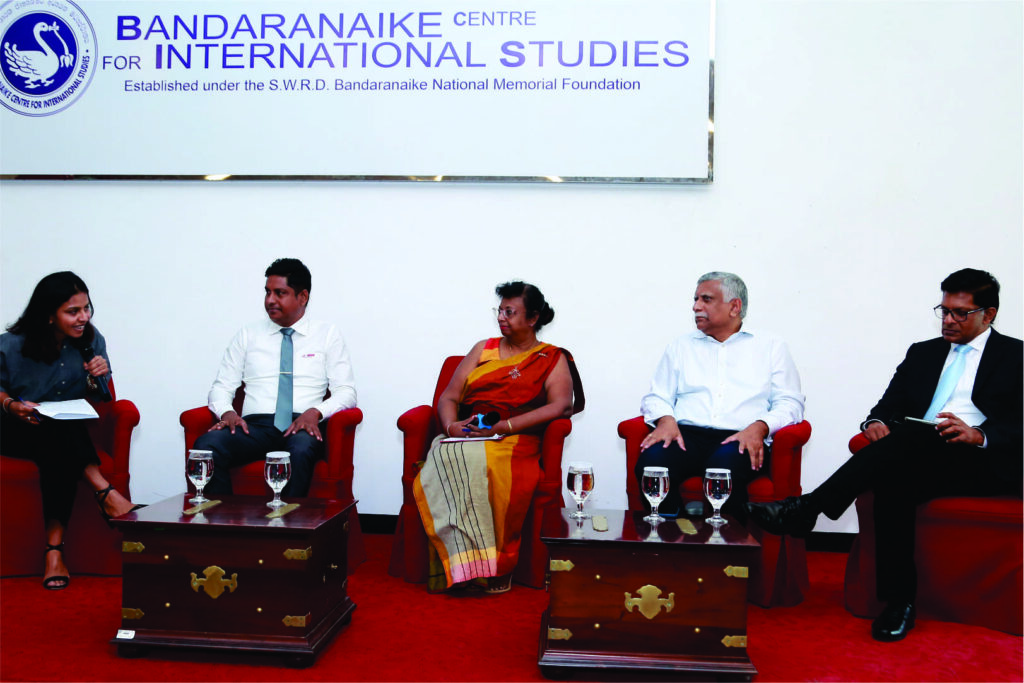
The First Segment of Biodiversity Sri Lanka’s 9th Annual Technical Sessions held in early September 2024 was titled: “Corporate Reporting on Nature and Biodiversity: What’s Next?”, focused on the growing importance of integrating biodiversity considerations into corporate sustainability reporting. With biodiversity loss accelerating, businesses are increasingly expected to report their impacts and dependencies on nature, alongside their traditional environmental and financial disclosures.
Session Overview
The session emphasised the shift toward more comprehensive corporate reporting, where nature and biodiversity are viewed as critical components of sustainability. Many companies are now facing pressure from investors, regulators, and stakeholders to disclose how their operations affect ecosystems and what steps they are taking to mitigate these impacts. The panel discussion delved into the evolving frameworks that businesses can adopt to incorporate biodiversity into their Environmental, Social, and Governance (ESG) reports, while also exploring the challenges and opportunities in this field.
Resource Persons
The session featured distinguished experts, with Ms. Pyumi Sumanasekera delivering the Keynote Address. The interesting panel discussion was moderated by Head of Sustainability/Senior Assistant Vice President of John Keells Holdings Ms Anosha Koralage. The panelists from both the private sector and environmental organisations included Executive Director of UN Global Compact Mr Rathika de Silva, Executive Director/Chief Financial Officer of DIMO Mr Suresh Gooneratne, and Senior Manager – Sustainability & CSR of INSEE Cement Mr Suresh Lakmal, Consultant – Ministry of Environment Dr Jinie Dela. The panelists discussed global trends in nature-related financial disclosures, the tools available to businesses for assessing their impacts on biodiversity, and the steps Sri Lankan companies can take to lead in this growing area of corporate accountability.

Reporting on Nature and Biodiversity
Ms. Pyumi Sumanasekera’s presentation outlined the critical need for Sri Lankan companies to report on their biodiversity impact. With many global industries—especially those reliant on natural resources—facing biodiversity risks, reporting on nature is becoming essential for businesses. The presentation emphasized that corporate sustainability reporting frameworks are evolving to include biodiversity metrics, allowing companies to better understand their dependencies on ecosystems and the impact of their operations on natural capital.
Nature-related risks can disrupt business operations and supply chains, particularly in industries such as agriculture, fisheries, and tourism, which are vital to Sri Lanka’s economy. The integration of biodiversity into corporate reports can help companies assess and manage these risks while contributing to global and national conservation efforts. Inaction on biodiversity could lead to reputational damage, financial risks, and increased regulatory pressures.
Panel Discussion Highlights
The panel discussed practical ways to incorporate nature-related disclosures into existing reporting frameworks and highlighted the importance of partnerships between businesses, government agencies, and conservation groups. This collaboration is key to driving action on biodiversity protection while maintaining economic resilience.
- The need for companies to integrate nature into their climate transition strategies.
- How frameworks like the Global Reporting Initiative (GRI) and Task Force on Climate-related Financial Disclosures (TCFD) are being adapted for biodiversity.
- The role of businesses in addressing biodiversity loss as part of a holistic approach to sustainability.
By adopting best practices in biodiversity reporting, Sri Lankan businesses can not only contribute to environmental sustainability but also strengthen their position in the global market as responsible and forward-thinking companies.
Call to Action
Session 1 concluded with a call to action for Sri Lankan businesses to embrace biodiversity reporting. The discussion underscored the necessity for companies to not only address climate change but also biodiversity loss, which is deeply interconnected with their long-term sustainability. Through better reporting practices and collaboration, businesses can protect Sri Lanka’s natural resources and contribute to a healthier, more sustainable future.



